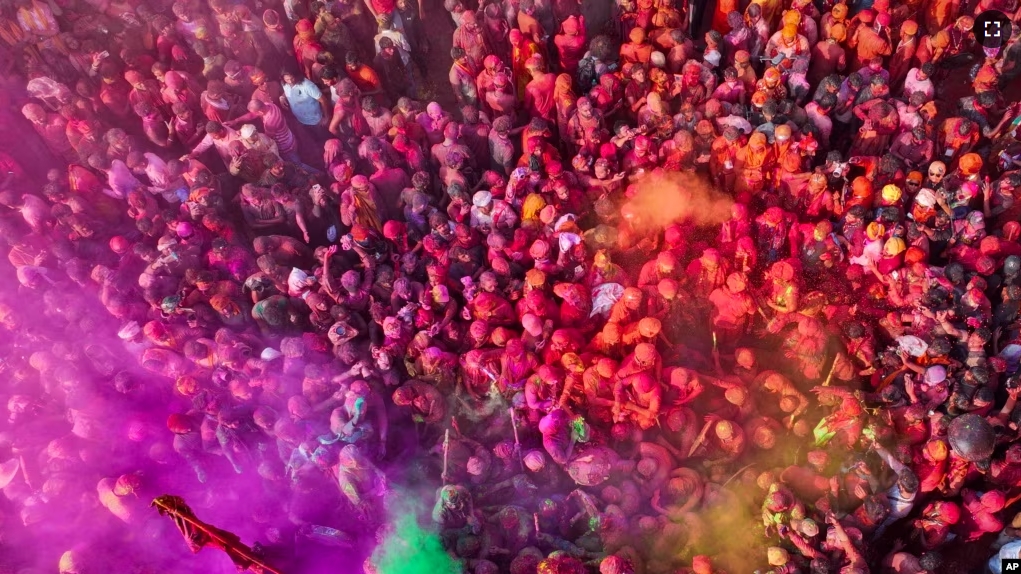And now, Words and Their Stories, from VOA Learning English.
On today’s show, we talk about colors.
Sometimes we talk about our feelings with words describing colors. For example, if I am feeling down or a bit sad, I can say I am “blue.” If I’m angry, I might say that I see “red.” If I’m out of sorts or really unhappy, I can say I’m in a “black” mood. If I want something that someone else has, I can say I’m “green” with envy.
All these different feelings can be represented with colors. But what about your “true colors?” What does it mean to show your true colors?
If we show our “true colors,” we are true to ourselves. We show what we are really like. We reveal our true nature, character, or personality.
For example, I have a friend who loves the sun and sea. When she is at the beach, she shows her “true colors.” She’s very active — swimming in the sea, walking along the beach, and enjoying other outdoor activities. When she is away from the beach, she doesn’t seem herself. She is often inside and not very active.
However, showing one’s true colors does not always mean something good. Some people may present themselves in a way other than how they really are. They might seem to have positive characteristics. They act kind, pleasant, generous, or helpful. But in fact, they are really the opposite. They are not showing their “true colors.” They keep their “true nature” hidden.
Let’s listen to this example:
A: You know, I thought Mack was easygoing. But then I worked with him on a big project.
B: I know exactly what you mean. He’s easygoing and fun to work with when he gets his way. But if you question any of his ideas, he shows his true colors.
A: That is exactly what happened! I suggested an alternative to his idea, and he became really rude … and mean.

Some word experts say the expression “true colors” dates back to the 1700s and comes from the world of sailing ships. Colored flags were, and still are, used to show what country a ship was registered to and to communicate with other ships at a distance. The ship’s colors were its flags.
Pirates’ ships would sail under “false colors,” meaning under a friendly flag. They would do this to get close to other ships without raising concern. Then, when the pirates were close enough and ready to attack, they would raise their “true colors.”
Show your true stripes
Another expression with a similar meaning is to show your stripes. Stripes can be your true nature and something you cannot hide or remove. However, this expression is less common.
Here is an example:
Marisa showed her true stripes when her back was against the wall. When she had no way out of the problems that she had created, she blamed everyone … everyone but herself, that is.
And that’s this week’s Words and Their Stories. Until next time…
I’m Anna Matteo.
Anna Matteo wrote this lesson for VOA Learning English.
______________________________________________
Words in This Story
envy –n. the unhappy feeling of disliking someone because they have or are something that you are not
reveal –v. to show or uncover something
character –n. the deep qualities that make a person who they are and form their personality
generous –adj. being considered someone who gives freely without worry or hesitation
alternative –n. a choice or choices other than the one being considered
rude –adj. behaving in a way that appear loud and unsociable
back was against the wall –idiom : in a bad position in which one is forced to do something in order to avoid failure
